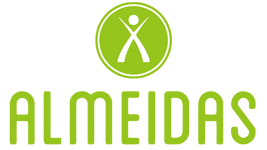
Cerebral Vascular Accident (CVA) - what to know
1. Symptoms of Cerebrovascular Accident (CVA)
In 2019, INEM registered, until October 27th, 3,456 stroke cases referred to the Via Verde do AVC, an average of 11 cases per day . The districts of Porto and Lisbon recorded the highest number of these referrals, with 819 and 702 cases, respectively.
Stroke is a medical emergency.
- Facial weakness: can the person smile? Does the mouth appear to be "on the side"?
- Weakness in the arms: can the person lift both arms?
- Speech problems: can the person speak clearly and understand what is being said?
- It's time to call 911 if you see any of these signs.

Other symptoms:
- Sudden weakness or numbness on one side of the body, including the legs, hands, or feet.
- Difficulty finding words or constructing clear sentences.
- Sudden blurred vision or loss of vision in one or both eyes.
- Sudden loss of memory or confusion and dizziness.
- A sudden, severe headache.
2. What is a Cerebral Vascular Accident (CVA)?
Different types of stroke
There are three different types of stroke: ischemic accidents, hemorrhagic accidents and transient ischemic attacks.
- An ischemic accident it is caused by a blockage that cuts off the blood supply to the brain. This is the most common type of stroke.
- A bleeding accident is caused by a hemorrhage in the brain or surrounding area.
- A transient ischemic attack or TIA is also known as a mini-stroke. It's the same as a stroke, except the symptoms only last a short period of time. This happens because the blockage that prevents blood from reaching the brain is temporary.
What causes stroke?
What happens after a stroke?
All strokes are different. For some people, the effects may be relatively minor and may be temporary. Others may have more serious problems, making them dependent on other people.
Unfortunately, some strokes can be very serious and some can result in coma or sudden death. . That's why it's so important to be able to recognize the symptoms and get medical help as soon as possible.
The sooner someone receives treatment, the better their chance of recovery.
